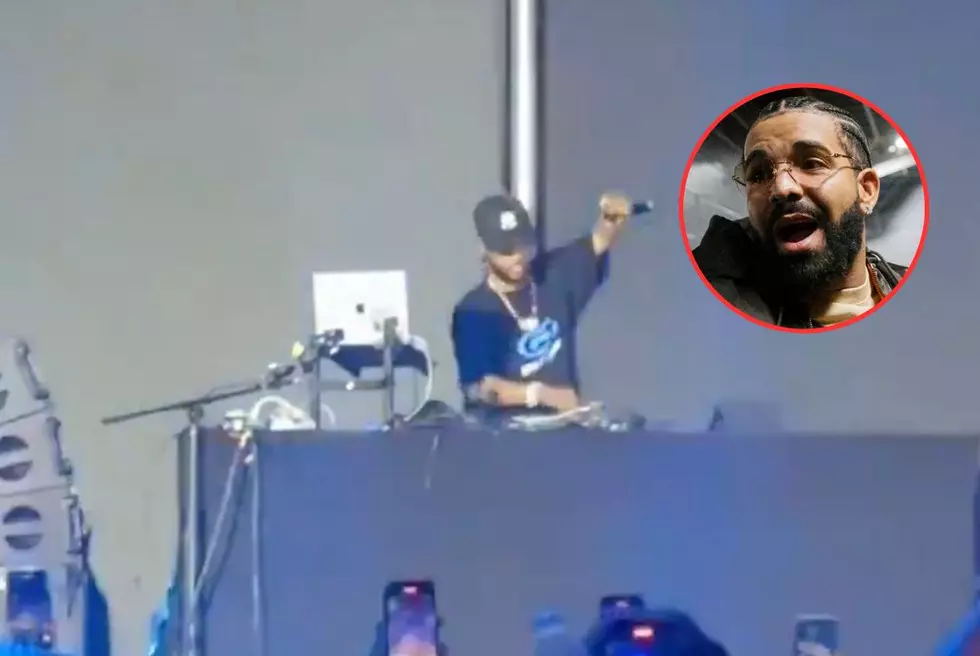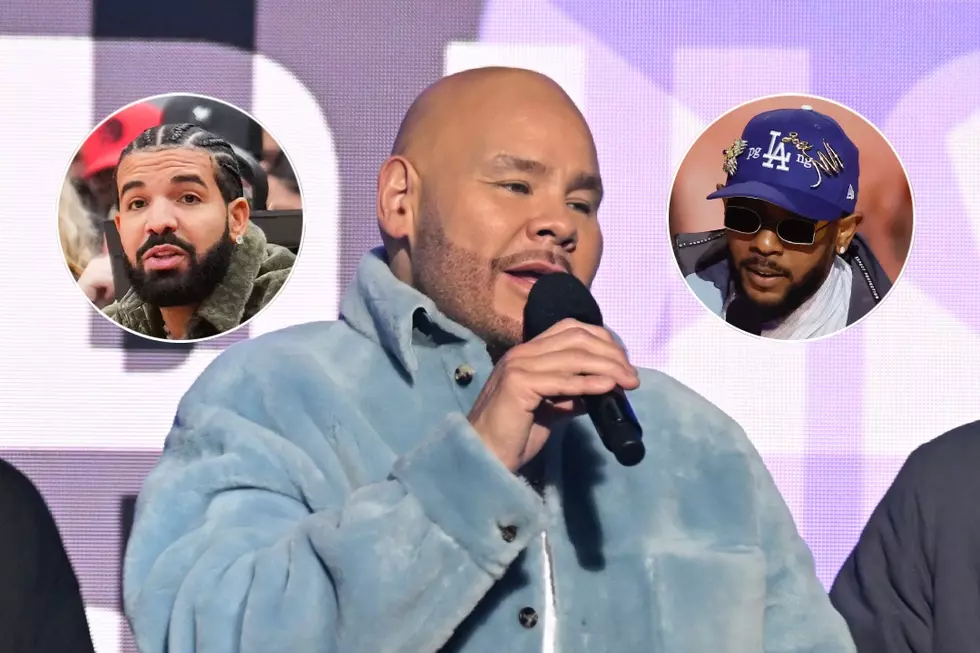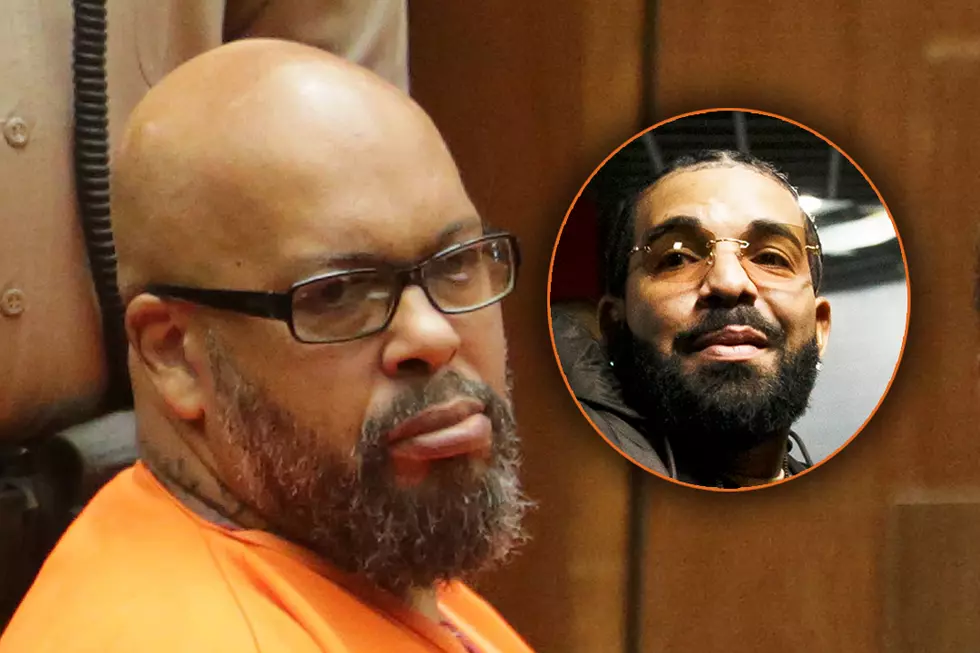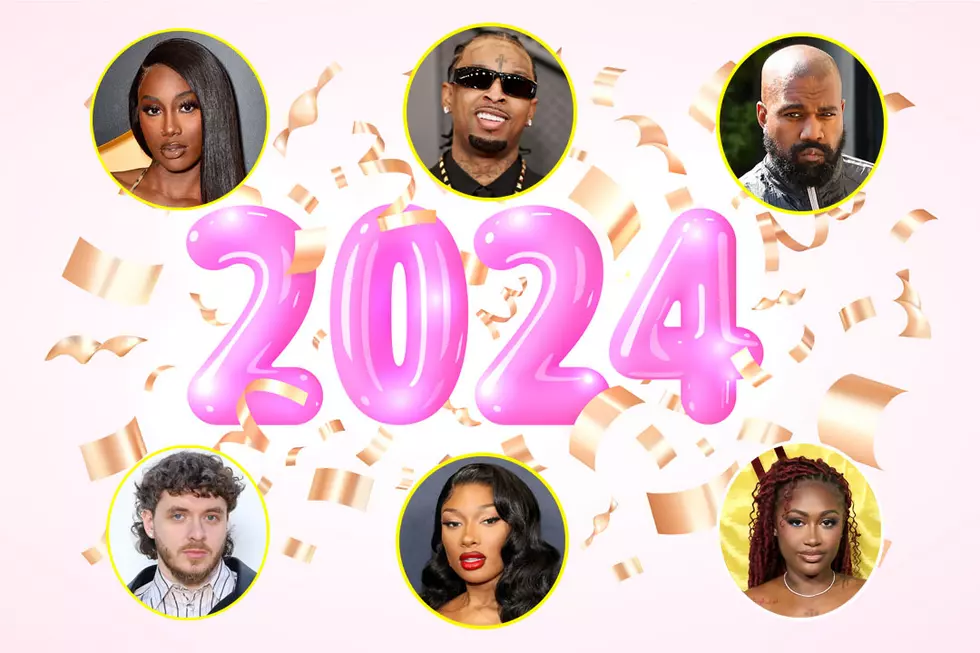
Lecrae on Church Clothes Mixtape, Why He’s Hip-Hop, No Malice, Kendrick Lamar & Jeremy Lin
With minimal mainstream press and radio backing, Lecrae has been building a small hip-hop empire over the last few years. His independent label, Reach Records, offers a roster of talented MCs with a message. The squad, spearheaded by Lecrae, has carved a lane and amassed a passionate following with their Christian-rooted raps—having sold hundred of thousands of records to date. Some more traditional hip-hop heads may be hesitant to give something with a religious tag a chance, but it's a bit misleading. Wrapped in technically adept raps, 'Crae and co. deliver music with a message without coming off preachy.
In recent months, the Atlanta-based MC has opened the ears of listeners and media outlets outside of religious circles. In hopes to widen his scope, he's set to drop the DJ Don Cannon-hosted mixtape Church Clothes tomorrow (May 10), which features No Malice as well as production from 9th Wonder and Boi-1da. Here, he talks about those relationships, acceptance within hip-hop, and why he shouldn't be boxed in. —Adam Fleischer (@AdamXXL)
XXLMag.com: This is your first mixtape. What made you want to do it now?
Lecrae: I know there’s a lot of people within hip-hop who are just starting to get familiar with what I’m doing and what I got going. I didn’t want them to have to one, pay for the music to experience it or test it out; and then, two, trying to communicate to a whole different group of people now. I think most of my fans were probably Christian fans, and wanted to hear particular things in music, and this goes around that. I wanted to address some different stuff in music that I thought a broader audience would appreciate.
Can you explain the Church Clothes title?
Everybody has this idea that, I gotta get dressed up; or, I gotta put on my church clothes. This putting on of airs. People believe that I gotta put on airs when it comes to dealing with God or dealing with Christians. Even like, when I first start meeting people, and they on the corner smokin’ or somethin’ like that, “Like, ah, there go ‘Crae, put it away.” But you ain’t gotta put on no airs for me. I don’t have a heaven or hell to put you in.
What was it like working with No Malice on this project?
It was dope. He reached out probably over a year ago, just asking questions. Somebody had kind of told him what I was doing, and he was like, “I’m in kind of a transition in my life.” He wanted to hear my story and my perspective, and from there we just started building. We talked about a little bit of everything—his life, and what he’s experienced, and my desire, too, to be involved in hip-hop culture and be able to just support people and help them. And then for him to explain to me some of the ins and outs and the woes of some of the life that he’s lived.
You worked with 9th Wonder and Boi-1da, too.
9th Wonder is my dude. We just connect on so many levels, it’s crazy. Both of us are equally passionate about substance in music. That’s really where I’m at. When you start talking about J. Cole and Big K.R.I.T. and Kendrick Lamar, I want to run right alongside those dudes. What’s important to them is their craft, and having something to say. That’s what me and 9th connected on. Boi-1da and I connected with years back. He’s a believer, he’s a Christian. He was like, “I appreciate you doing this. Someone told me about what you were doing, I thought it was dope. I wanna do some work with you.” He’s been busy, but he made time to slide me some work for this project, too.
Kendrick was in the “Church Clothes” video. What kind of relationship do you have with him?
Kendrick and I have been chopping it up for a few years now, just going back and forth. There’s a mutual respect. I appreciate his honesty and transparency. That’s one of the things you gotta say about him, is he’s gonna tell you what he believes and what he doesn’t believe, and if he’s confused, he’ll tell you that, too. K.R.I.T., too. I just recently got up with K.R.I.T. and that’s been real dope, because he’s the same way—just real transparent and what you see is what you get. I really appreciate people like that.
How did you link with Cannon?
We connected through my man Street Symphony, who’s a producer and also does A&R for me. Street has done stuff for Gucci Mane, Yo Gotti, the list goes on. So he was connected with Cannon and had that relationship. Cannon believed in the project 100%. He’s like, “Man, I rock with anybody who’s unashamed to stand for what they believe in and put it on wax.”
In the last year or so, your name has begun to cross over into more mainstream hip-hop circles. How has that changed what’s been going on with your movement?
I think more people are aware of what I’m doing. If anything, it’s made me be a little more intentional about addressing broader issues. Sometimes, as a Christian, you tend to talk about things that are only applicable within the Church or within the Christian community, instead of addressing a lot of elephants in the room that people who don’t go to church or have issues with the Church want addressed. Or just regular life stuff. I don’t always have to talk about me reading the bible or something along those lines. I do the same regular life things that most people do. More than anything, my message and mission has always been to give hope and inspiration and to see people transform.
Someone who isn’t a Christian or maybe is but isn’t religious, what would draw them to your music?
If somebody’s not rocking with what I believe, at the end of the day, I’m very passionate about the craft and the art. I’m gonna make sure I put out good art. I think anybody who loves hip-hop is gonna say, “I can’t deny: this is good hip-hop.” And that’s my whole reach records crew. We not gonna just put out something and say, “Well, because we believe in Jesus you should buy this;” we want it to be good art. On top of that, I can articulate some things that a lot people is like, “Okay, I can get that picture.” Plus, it’s just me right alongside what Brand Nubian has been doing, what Wu-Tang has done, what Lupe does—drop gems of faith in their music. You can rock with it or not.
Jeremy Lin shouted you out recently. Have you met him? What was that like?
Yeah, man. My Reach Records team and Trip Lee actually got out to New York and got some time to go to a game and hang out and get his perspective. He’s a fan. I love it. He’s family. I support J. Lin.
Do you ever resent the niche of this Christian hip-hop title that you’ve been given?
I remember when Eminem, I forgot the song ["My Dad's Gone Crazy"], but he was like, “I’d rather be a mutha****** gospel rapper.” I remember how that resonates through the culture. Like, "Man, that scene is wack." The craft is frowned upon and it seems wack. So, for me, it’s more the presupposition of what that is and I don’t wanna be associated. Just call me hip-hop. Lecrae the person is a Christian, but my music is hip-hop, and I don’t want you boxing my music in because you have this presupposition of what it is. It’s frustrating at times, but little by little it’s starting to happen.
How do you break out of that box?
By making good music, building relationships, and then also—what’s funny is that in the Grammy’s, Christian music is the only music that is categorized off of content. Everything else is genre. Hip-hop is genre. When you start making content that everybody can relate to. That’s my aim now: to let people know that we care about a lot of the same things. We read the same books, we listen to the same songs, I have a different outlook about me sometimes, but we’re more alike than you can imagine.
More From XXL









